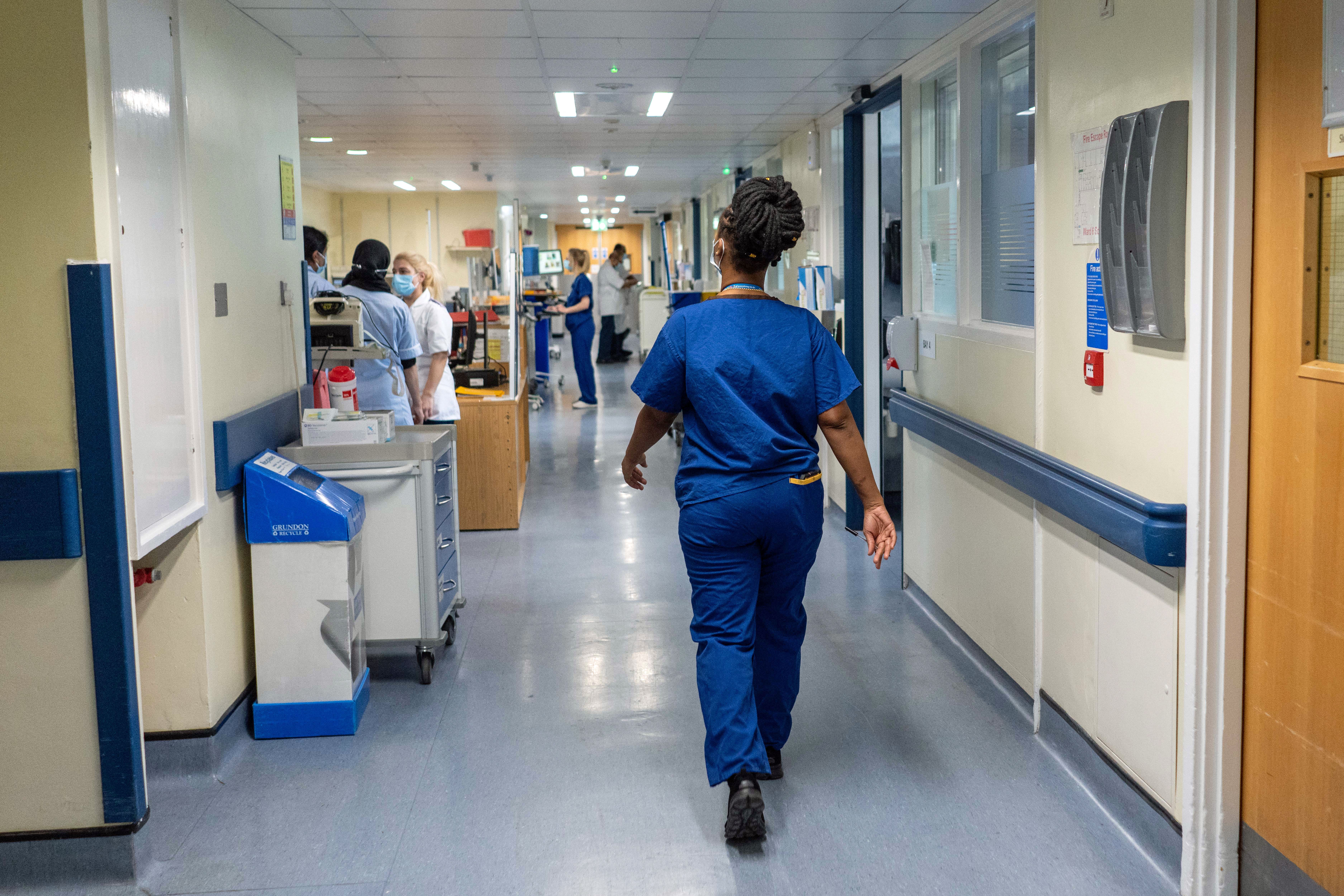Your support helps us to tell the story
From reproductive rights to climate change to Big Tech, The Independent is on the ground when the story is developing. Whether it's investigating the financials of Elon Musk's pro-Trump PAC or producing our latest documentary, 'The A Word', which shines a light on the American women fighting for reproductive rights, we know how important it is to parse out the facts from the messaging.
At such a critical moment in US history, we need reporters on the ground. Your donation allows us to keep sending journalists to speak to both sides of the story.
The Independent is trusted by Americans across the entire political spectrum. And unlike many other quality news outlets, we choose not to lock Americans out of our reporting and analysis with paywalls. We believe quality journalism should be available to everyone, paid for by those who can afford it.
Your support makes all the difference.NHS hospitals serving 2 million patients are at risk from unsafe concrete, the government has been warned.
Seven hospitals staffed by 42,000 NHS staff are among those so far identified as suffering from problems with reinforced autoclave aerated concrete (Raac).
Opposition politicians said it was a “national scandal” after research by the House of Commons Library found the combined catchment areas covered a total of 1.9 million people.
It comes after the head of NHS England told MPs the management of Raac in hospitals was “really quite burdensome” for staff.
Amanda Pritchard told the Commons Public Accounts Committee (PAC) on Thursday that dealing with the building material had “put a lot of pressure on teams, not least in terms of enhanced monitoring arrangements”.
Out of the seven hospitals included in the analysis, University Hospital Southampton has the largest number of patients in its catchment area, with 468,295 – followed by Blackpool Teaching Hospitals at 316,122 and the Queen Elizabeth Hospital in King’s Lynn with 249,000.
However, the actual total number of people served by unsafe hospitals is expected to be even larger as the Library analysis does not include 11 trusts with multiple hospitals from its analysis as not all of their sites will necessarily be affected.
There are also a further five trusts affected by Raac which have not yet been publicly identified.
“It is frankly a national scandal that so many people live in areas with hospital buildings at risk of collapse," Liberal Democrat leader Ed Davey said.
“Hard-working doctors and nurses were the heroes of the pandemic, and deserve better than to work in unsafe conditions under roofs at risk of collapse.
“This feels like a disaster waiting to happen with the NHS. The government must learn the lessons from their failure on crumbling schools and get these hospitals fixed as soon as possible. There is no time to waste when NHS staff and patient safety is a risk.
“Ministers cannot kick the can down the road any longer. The public will never forgive Conservative Ministers if they ignore another warning of public sector buildings falling apart.”
Reinforced autoclaved aerated concrete or Raac is a lightweight alternative to standard concrete that was used mostly in flat roofing but also in floors and walls across buildings during the 1950s to 1990s.
But in the past few years, Raac has failed in a number of settings meaning schools have to urgently fix buildings where it is present.
147 schools are so far thought to be affected, with the number expected to grow as more checks are carried out. Other public buildings undergoing checks include theatres, social housing, and courthouses.
A Department of Health and Social Care spokesperson said: “These claims are highly misleading. The safety of NHS staff and patients has always been our top priority.
“The NHS manages the hospital estate in line with technical advice and best practice. Where RAAC is identified, an effective mitigation plan is put in place to ensure hospitals are safe for patients and staff. We’ve also backed the NHS with significant additional funding of £698 million from 2021 to 2025, for trusts to put in place necessary remediation and failsafe measures.
“We remain committed to eradicating RAAC from the NHS estate entirely by 2035 and we’ve announced that the seven most affected NHS hospitals will be replaced by 2030 through our New Hospital Programme.”

Join our commenting forum
Join thought-provoking conversations, follow other Independent readers and see their replies
Comments